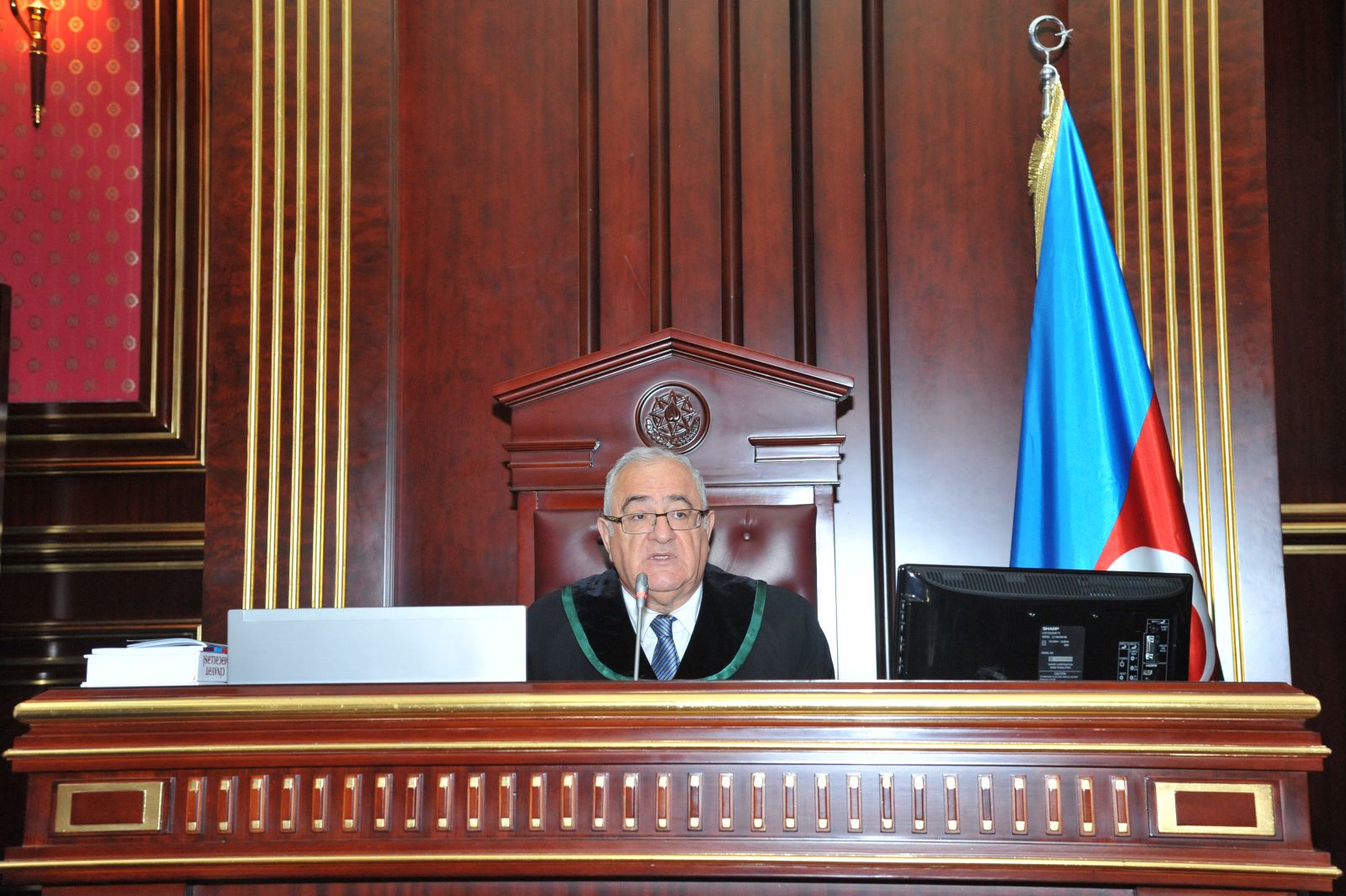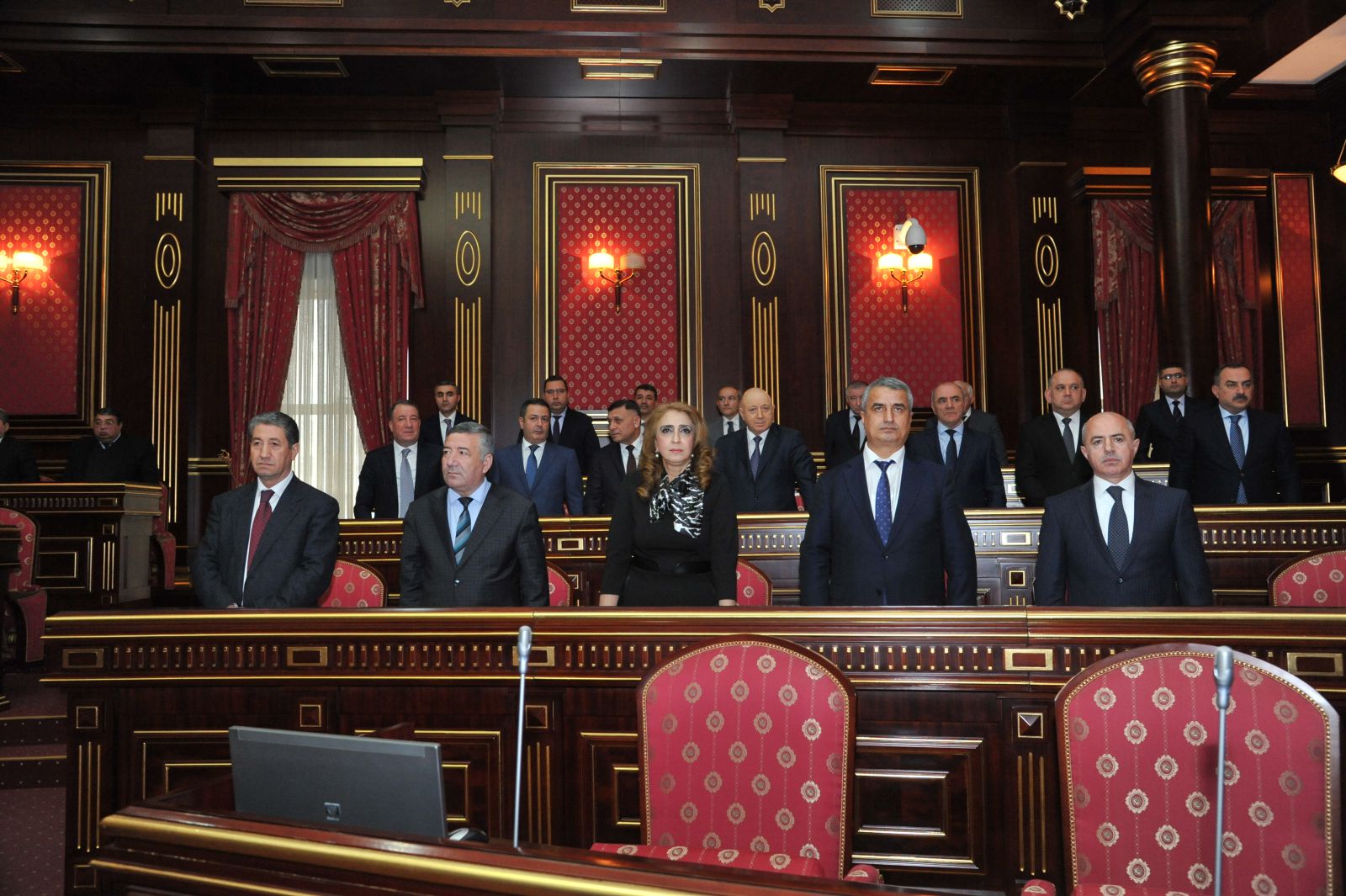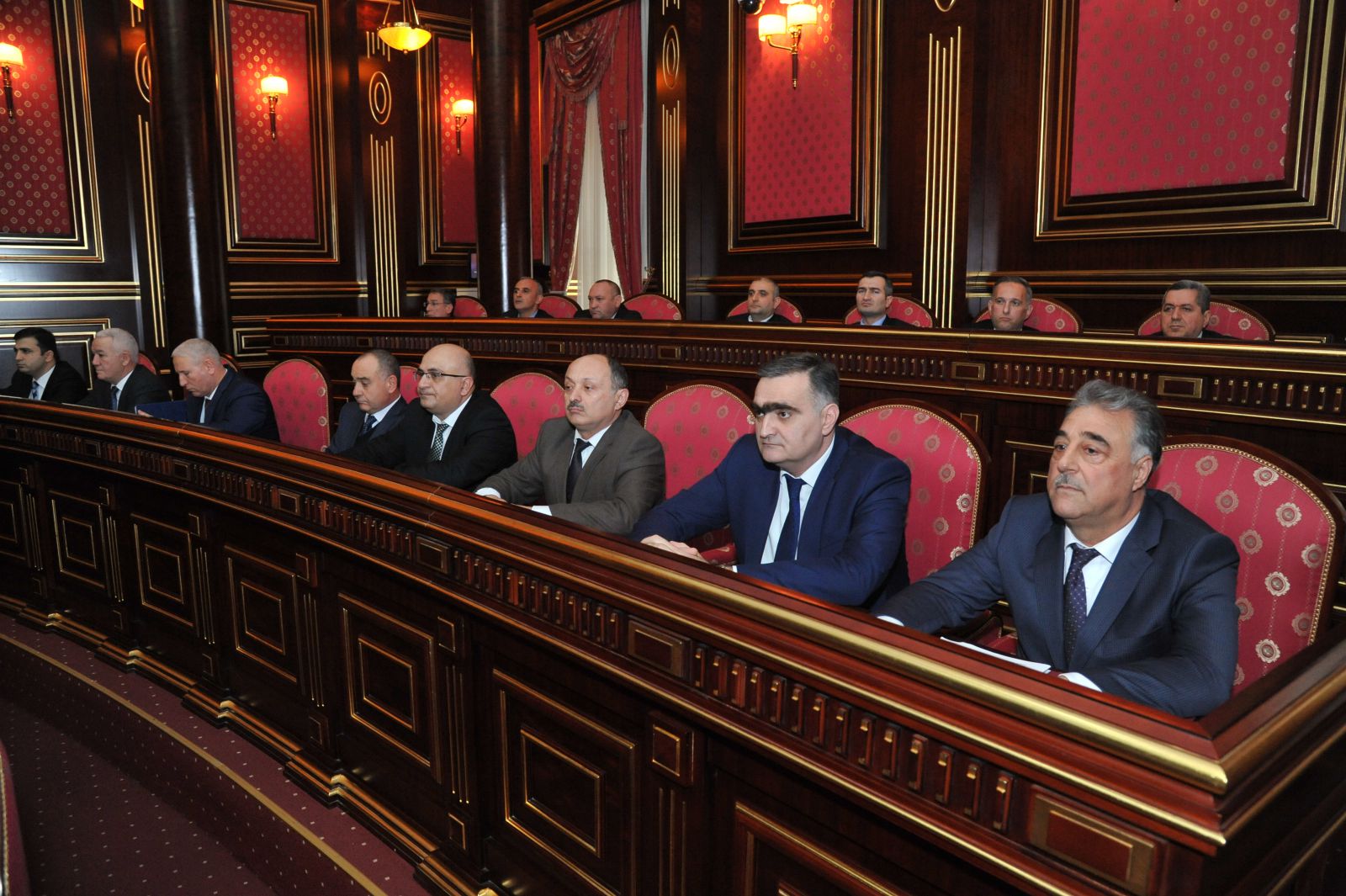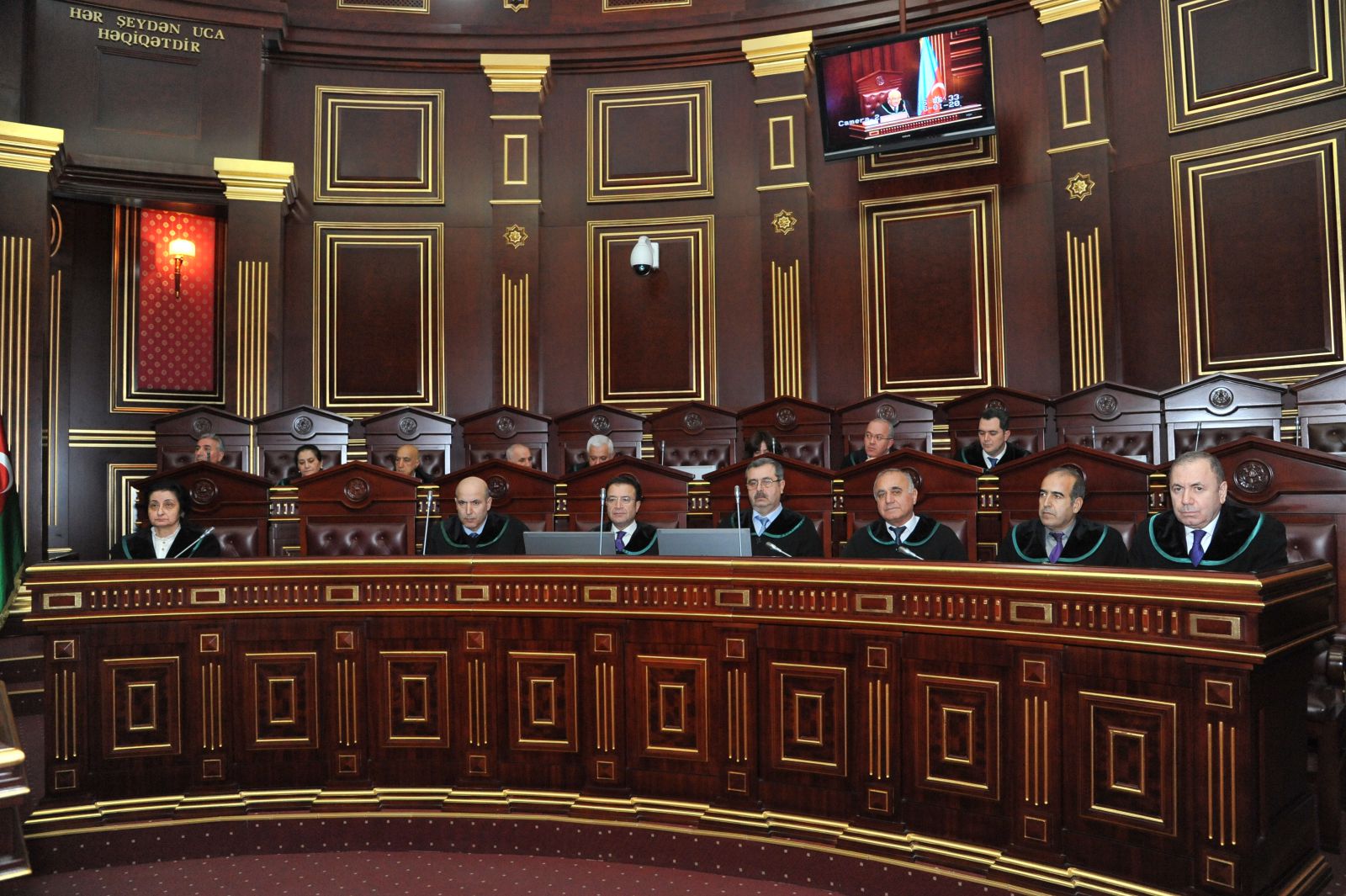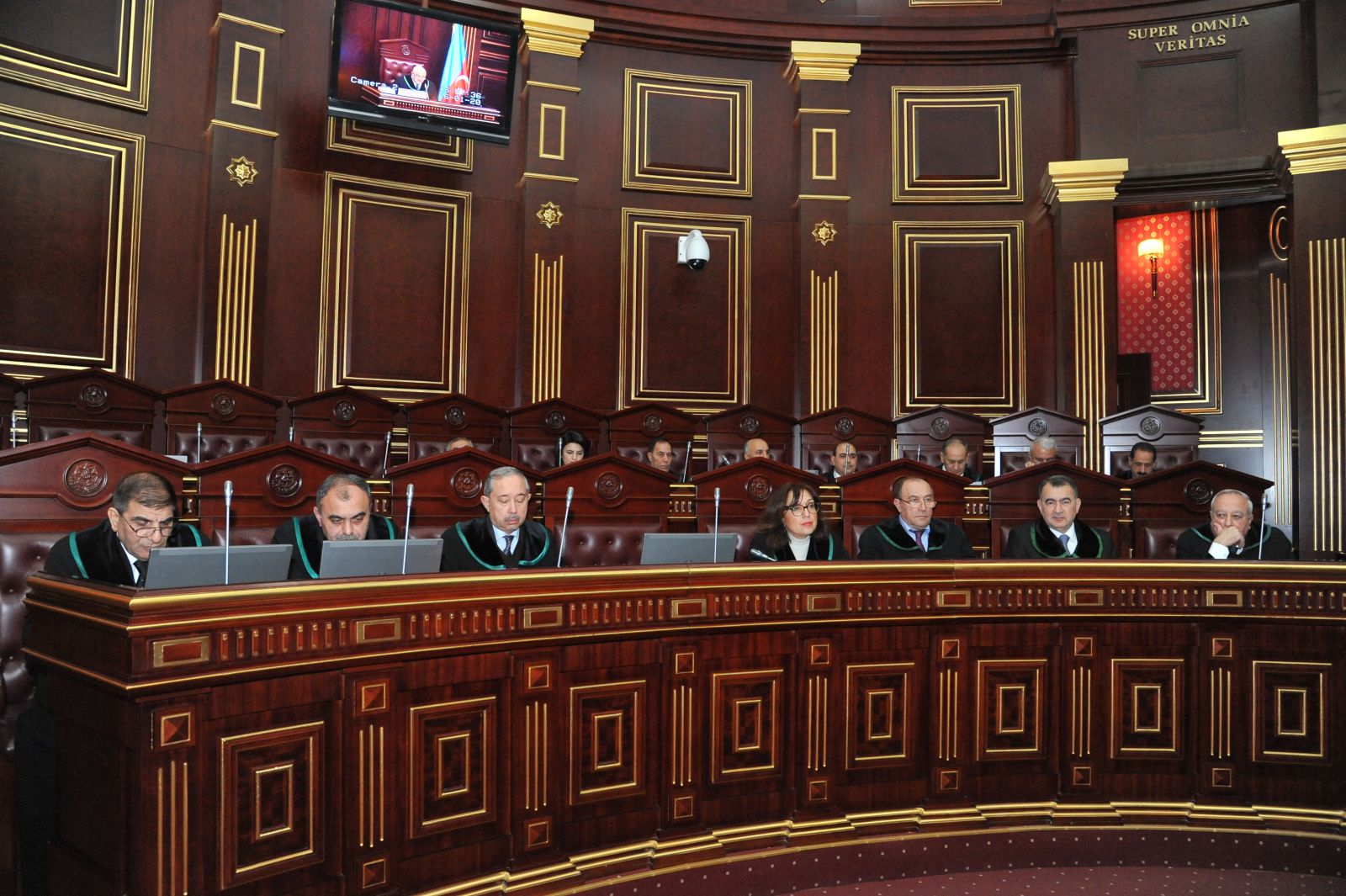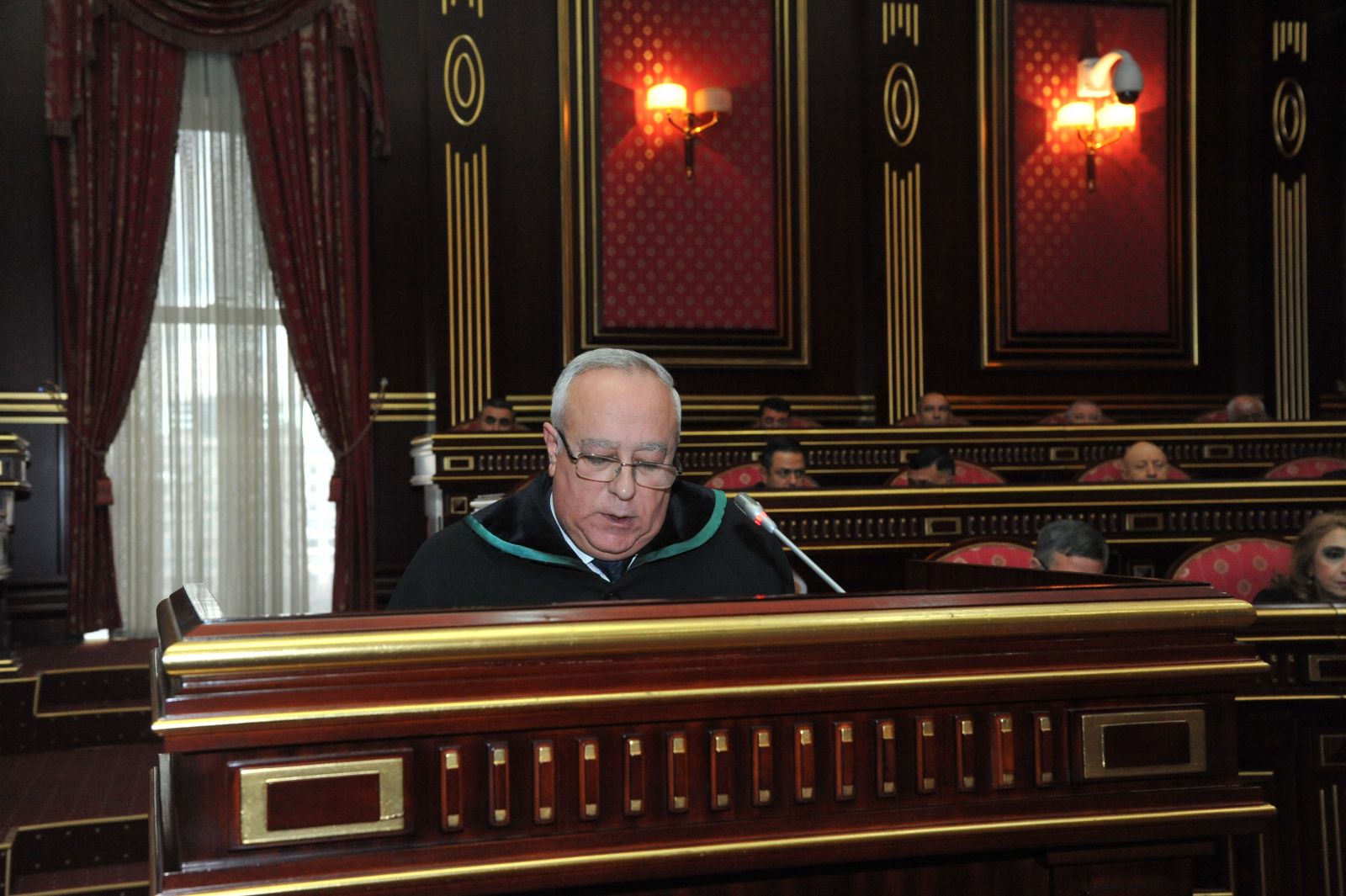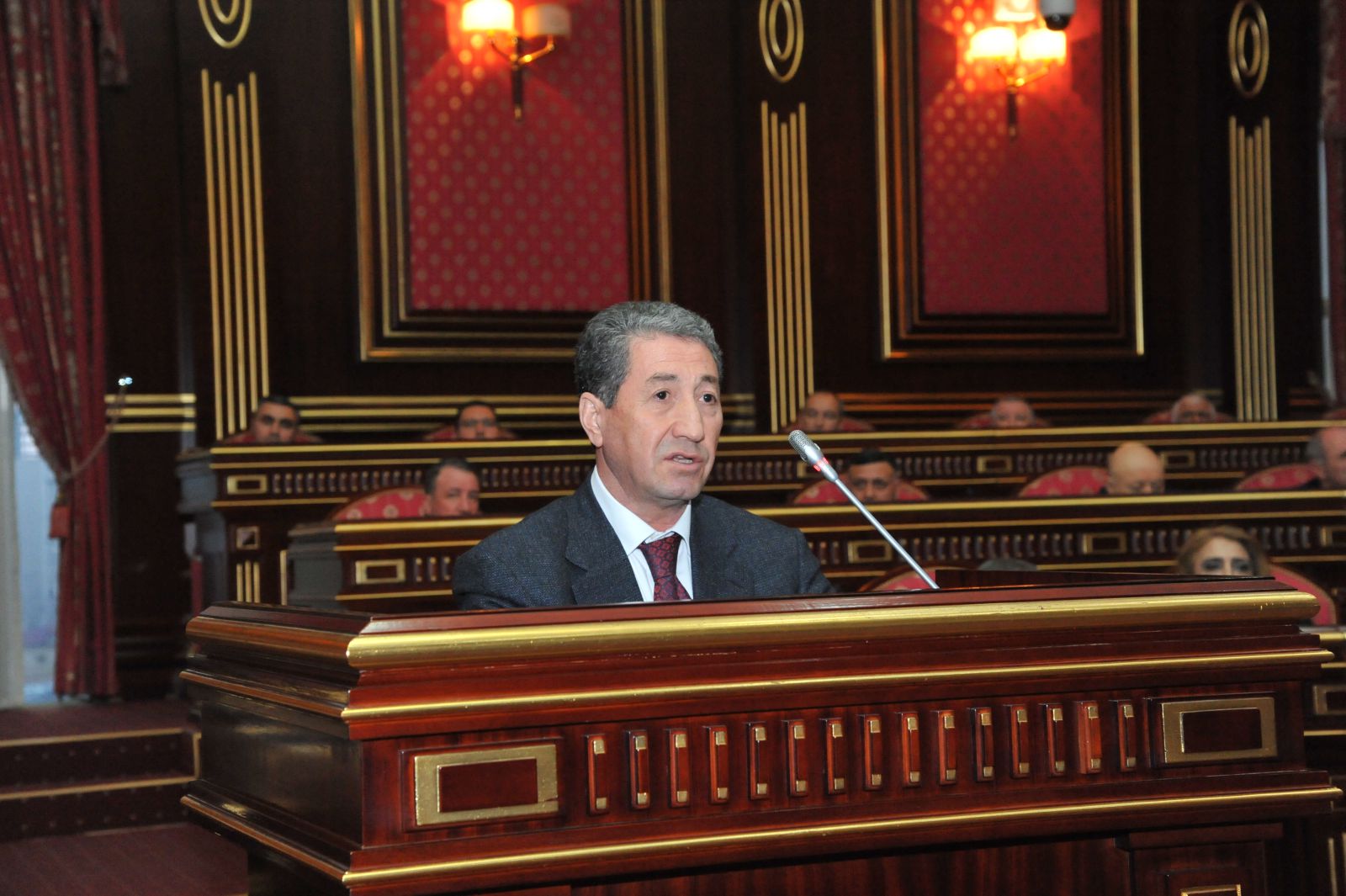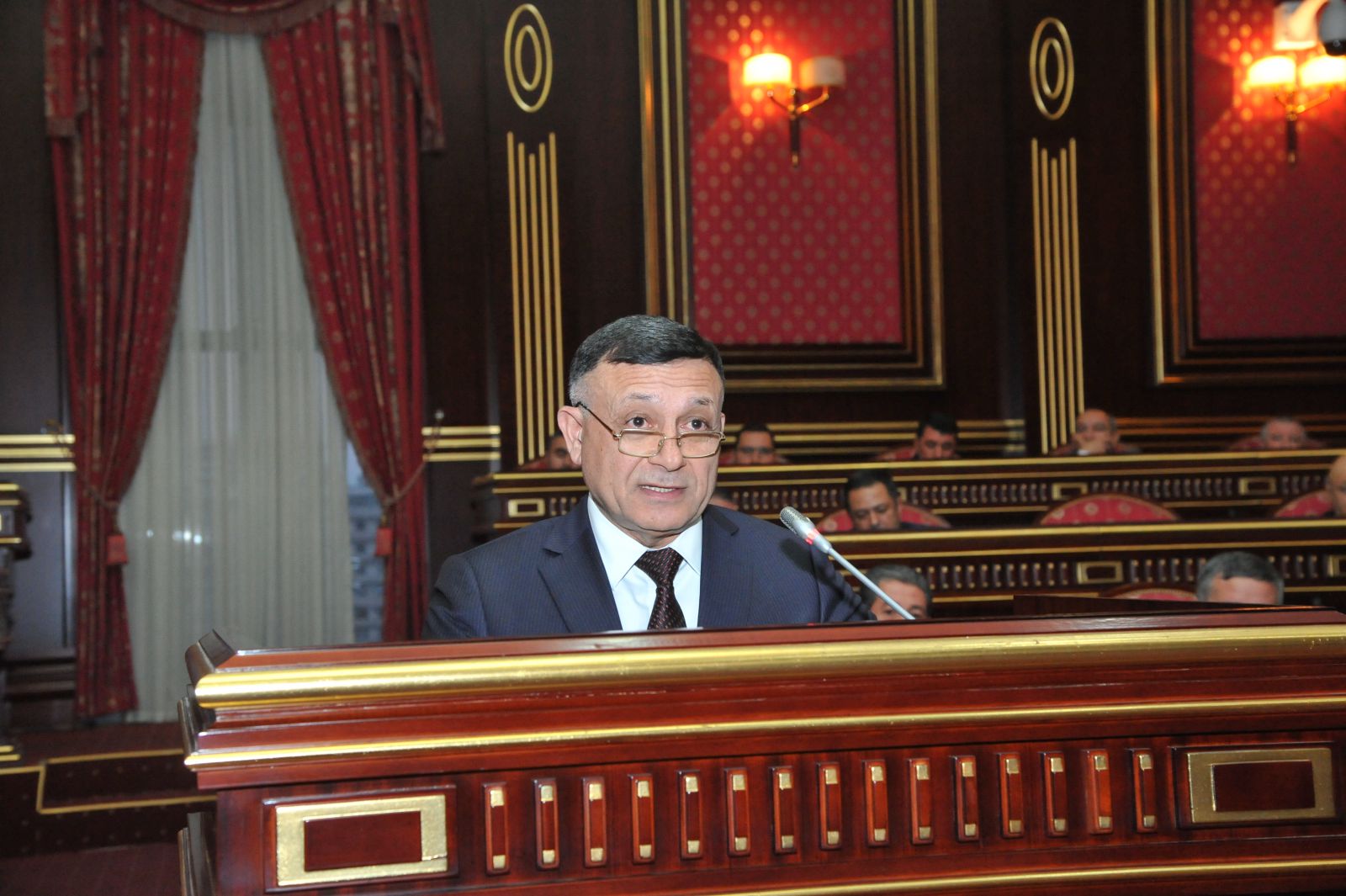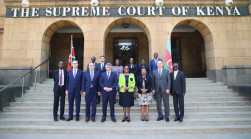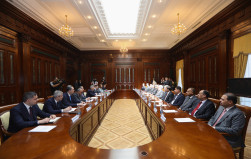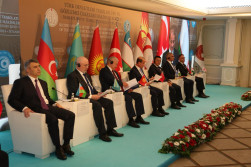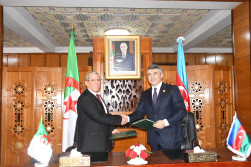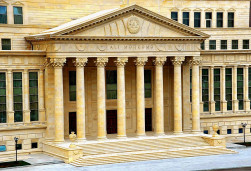Plenary session of the Supreme Court of the Republic of Azerbaijan
28.10.2014, 12:35The sequential Plenum of the Supreme Court of the Republic of Azerbaijan chaired by Ramiz Rzayev was held on January 16, 2020.
Opening the plenary session, the Chairman of the Supreme Court stated that, according to Article 12 of the Constitution of the Republic of Azerbaijan, the highest goal of the state is to ensure human and civil rights and freedoms and decent living standards for the citizens of the Republic of Azerbaijan.
In order to achieve these goals, the President of the Republic of Azerbaijan Ilham Aliyev is carrying out large-scale socio-economic and legal reforms in our country.
The legislative system of the Republic of Azerbaijan is constantly improving with the view of ensuring legal regulation of ever-evolving and changing public relations and the new adopted legislative acts.
The Decree of President Ilham Aliyev "On Deepening Reforms in the Judicial-Legal System" dated on April 3, 2019 is an important part of the judicial-legal reform, as a further manifestation of the exceptional importance of the President to the judicial system. Indeed, the Decree is a "road map" that identifies strategic priorities for the future development of the judicial system, ensuring the reforms of the judicial system to deepen, meet modern requirements and continue systematically.
It was noted in the plenary session that was held for ensuring the implementation of the President of the Republic of Azerbaijan Mr.Ilham Aliyev's Decree on the "Improvement of activities in penitentiary sphere, humanization of criminal policy and expanding the use of alternative penalties and procedural coercive measures not related to isolation from society" dated February 10, 2017, that it is planned to generalize practical experience of the legislation not less than twice a year while looking through presentations on the selection of pre-trial detention for the persons accused and the extension of their detention by courts of first instance and appeal in working plans of the Supreme Court.
Regularly the Supreme Court takes appropriate measures to ensure the stability of the courts' approach to the settlement of legal issues and the predictability of its legal position regarding the application of regulatory legal acts, certain recommendations and necessary decisions are taken to develop perfect mechanisms.
The results on “Generalization of the practice of application of legislation in the review of presentations on selection of precautionary measures and prolongation of detention against persons accused by the courts of the first and appellate instance of the Republic in the first half of 2019" were discussed at the plenum.
It was noted that 5105 submissions were received by courts on the selection of pre-trial detention for the persons accused and on the extension of their detention for the period of generalization. According to the results of the generalization, 86,48% of the submissions received by courts on the selection of pre-trial detention for the persons accused were provided while 13,52% of them were not provided. 95,30% of the submissions received by courts in the first half of 2019 on he extension of the detention of the accused persons while 4,70% of them were not provided.
As a result of the generalization, it was determined that cases of this category are properly considered by courts in accordance with the requirements of legislation. However, in the course of examining these cases by some judges, it was determined that there were violations of the norms of material and procedural law, mistakes were made in the application and interpretation of the norms of material law.
The results of the generalization were discussed in detail at the Plenary Session of the Supreme Court, and the shortcomings were brought to the attention.
Göstərilən platformalarda paylaş:


